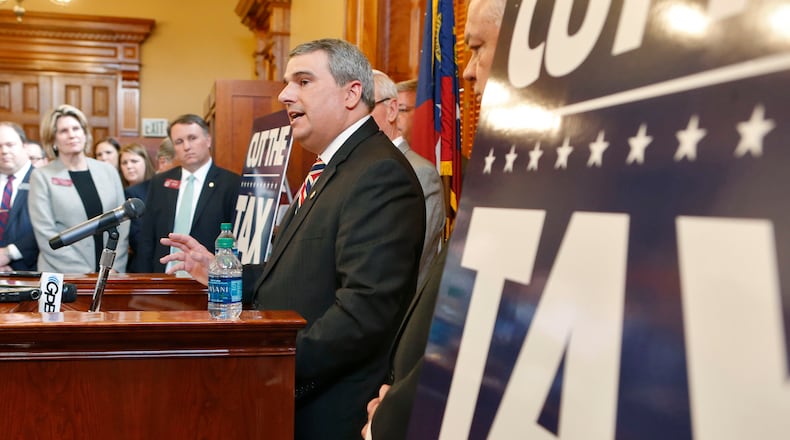More private school scholarship dollars at the expense of tax revenue for the state could result from approval Tuesday of an expansion of a tax credit program.
House Bill 217 still must get through the Georgia Senate, but approval by the House was a major milestone for the 9-year-old program.
The program has been capped at $58 million, and it typically reaches that limit on the first day of availability each year, leading proponents to call for an increase.
HB 217 lifts the cap to $100 million over a minimum of six years. It would rise to $65 million next year, then by 10 percent each year thereafter, assuming enough demand.
The legislation by Rep. John Carson, R-Marietta, also limits to 25 percent the proportion of the credits available to “C” corporations and trusts, which can contribute up to three quarters of their tax debt. That’s far more than individuals, and Carson was concerned about corporations squeezing them out.
The tax credit program works like this: Taxpayers pledge money — up to $1,000 for an individual, $2,500 per married couple and $10,000 for shareholders or owners of businesses (except those “C” corporations) — to specific private schools and get a tax credit for the amount. The money passes through nonprofit scholarship organizations, which assign it to students. Taxpayers can select which school gets the money but not which student.
The tax credits have helped pay for thousands of children to attend private schools, but critics say they reduce state funding available for other government programs, such as subsidies to local school districts. Some also criticize the level of transparency with the program and even its legality. Georgia taxpayers sued in Fulton County Superior Court in 2014, alleging it is unconstitutional because some schools that receive the money are religious, in apparent violation of the constitutional mandate for the separation of church and state.
Carson, the chief co-sponsor of HB 217, included a couple changes to address the critics. The bill requires that scholarship organizations report the average value of the scholarships they issue by the "quartile” income brackets of the recipient households, meaning the range of incomes divided into four segments. Currently, the law requires that each organization report the number of families per income bracket but not how much money they got. It’s an important distinction for a program that was pitched as a way to help poor kids attend private school. The bill also requires that the nonprofit scholarship organizations report the fees they’ve retained. They can keep as much as 10 percent of each contribution.
Each scholarship organization would have to report its fees and scholarship values to the Georgia Department of Revenue, but the agency would be prohibited from releasing the scholarship value information to the public, according to the language in the bill.
When asked about that, Carson said it had been his intent to report all of this new information to the public but that the bill contained an error that must be corrected to allow for the disclosure.
Carson also introduced House Resolution 363, which would establish a study committee to take a broad look at how scholarships are awarded. As of Tuesday, it had not yet been scheduled for a vote by the full House.
About the Author




